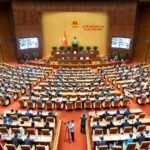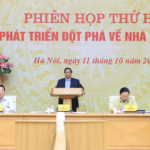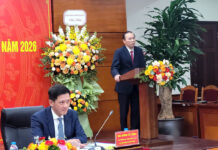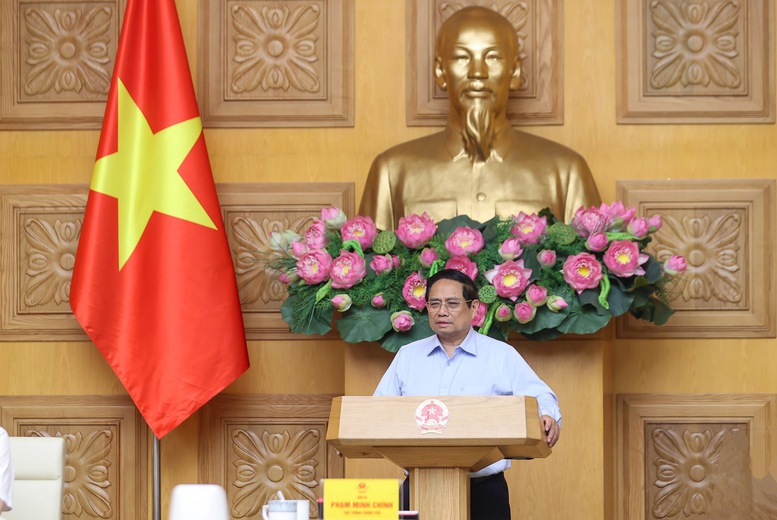
Prime Minister Pham Minh Chinh chaired a meeting of the Government’s Standing Committee with associations and businesses to address challenges in product standardization and compliance. Photo: VGP/Nhat Bac
The meeting was attended by Deputy Prime Ministers Nguyen Chi Dung, Tran Hong Ha, Ho Duc Phoc, and Le Thanh Long; leaders from the Ministry of Science and Technology (MOST), which is responsible for national quality management, standards, and technical regulations; representatives from various ministries, the Vietnam Chamber of Commerce and Industry (VCCI), associations, and relevant businesses.
Participants engaged in open discussions, identifying standards and regulations needing revision. They focused on swiftly resolving bottlenecks to meet development demands, particularly by streamlining administrative procedures.
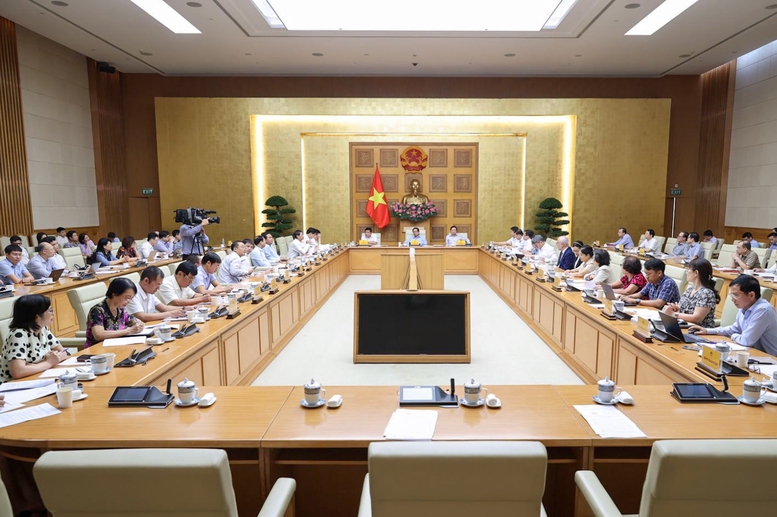
Delegates discussed solutions for standardization and compliance challenges. Photo: VGP/Nhat Bac
Prime Minister Pham Minh Chinh emphasized the spirit of “businesses leading, public-private partnership, national prosperity, and citizen well-being.” He urged all agencies to fulfill their responsibilities, prioritize democracy and accountability, and focus on public welfare and national development.
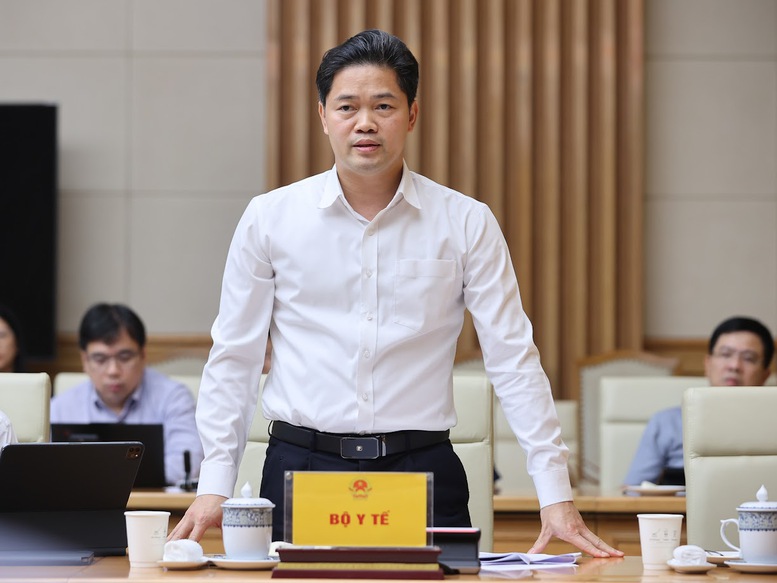
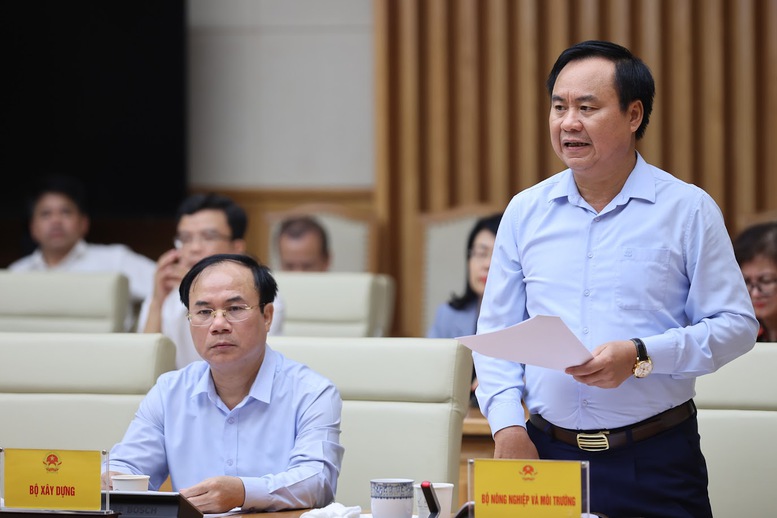
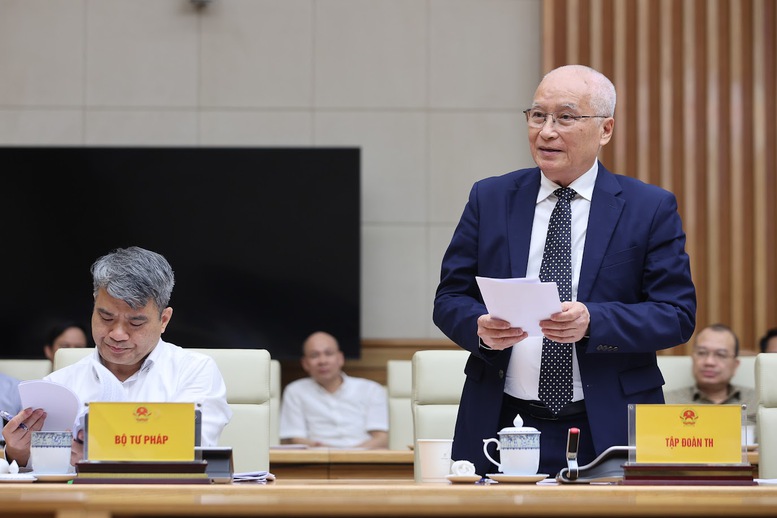
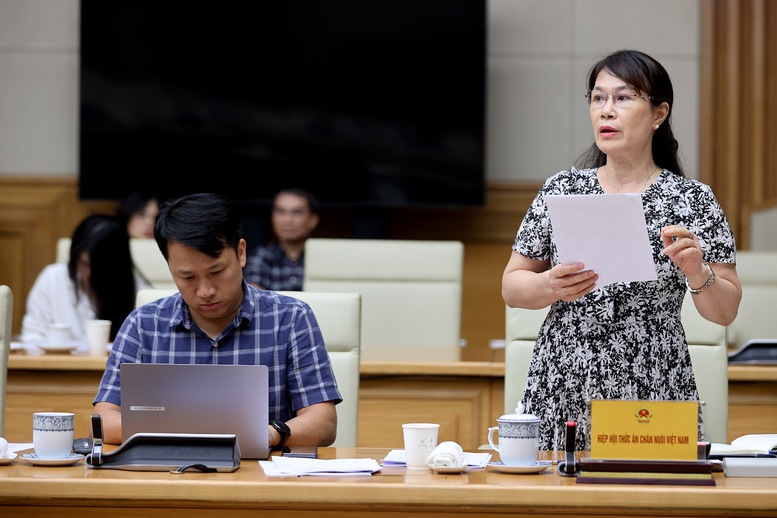
Delegates presenting at the meeting. Photo: VGP/Nhat Bac
MOST has led efforts to review and draft two key laws—the Law on Standards and Technical Regulations and the Law on Product and Goods Quality—to establish a new legal framework, addressing long-standing overlaps and inefficiencies in compliance processes.
The revised laws shift from “pre-check” to “post-check” mechanisms, focusing on risk management. Mandatory measures apply only to medium- and high-risk products, while compliant goods under specialized laws are exempt from declaration requirements. This reform simplifies procedures, reduces compliance costs, and aligns with international practices.
To further support businesses, the Prime Minister directed MOST to collaborate with the Ministry of Justice, Agriculture and Environment, Health, and other agencies to harmonize laws related to standardization and compliance.
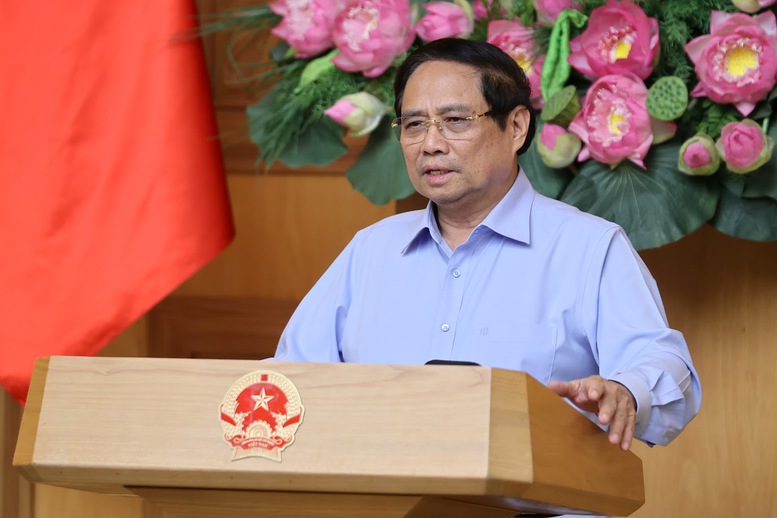
MOST tasked with resolving compliance challenges. Photo: VGP/Nhat Bac
MOST will expedite decrees implementing the new laws, ensuring transparency and traceability. The Prime Minister stressed adopting international standards where applicable and streamlining procedures.
MOST will centralize efforts to address compliance issues, incorporating public and business feedback. Agencies must adopt practical solutions, with MOST drafting a government resolution and ministries revising decrees and circulars.
Relevant ministries will review 824 national technical regulations, categorizing products by risk to amend or repeal regulations as needed.
The Prime Minister emphasized proactive standards, post-check enforcement, and reduced compliance burdens, especially for critical sectors like food and pharmaceuticals. Measures must balance safety with administrative simplification.
By January 1, 2026, ministries must issue circulars to ensure synchronized, feasible regulations under the new laws.
The Ministry of Agriculture and Environment will revise laws to eliminate redundancies, simplify procedures for veterinary drugs and feed, and adopt digital traceability. Updated regulations will recognize international management systems like ISO 22000, reducing testing requirements and administrative burdens.
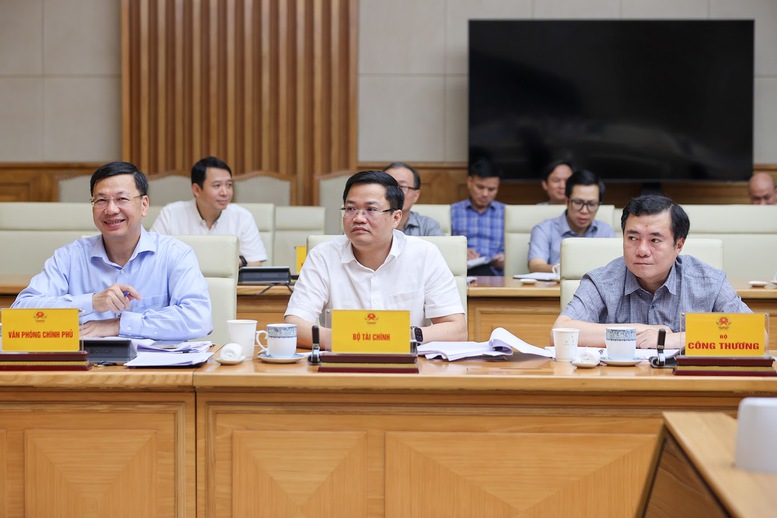
Meeting attendees. Photo: VGP/Nhat Bac
Ministries of Construction, Industry and Trade, Health, and Finance will ensure unified, transparent quality management without unnecessary barriers.
The Prime Minister prioritized a national database for standardization and compliance, digital platforms for state management, and enhanced reforms to cut red tape and improve enforcement.
Violations, especially in food and drug safety, will be strictly penalized. Officials neglecting business challenges or allowing substandard goods will face consequences.
The Government pledges to create a stable, transparent business environment, fostering investment and sustainable growth. Businesses are encouraged to provide feedback for policy improvements.
Prime Minister Pham Minh Chinh: Vietnam’s Economy to Surge from $346 Billion in 2020 to $510 Billion by 2025
Prime Minister Pham Minh Chinh announced that Vietnam’s GDP growth is projected to exceed 8% in 2025, with an average growth rate of 6.3% from 2021 to 2025, surpassing the previous term’s 6.2%. The country’s economic scale is expected to expand from $346 billion in 2020 to $510 billion in 2025, propelling Vietnam up five places to the 32nd position globally.
“High-Performing Businesses Should Continue to Be Awarded Social Housing Projects”
At the Nam Long 2 social housing complex in Can Tho on the morning of October 19th, Prime Minister Pham Minh Chinh commended the efforts of businesses that have effectively implemented affordable housing projects for low-income individuals. He emphasized that well-performing entities should continue to be entrusted with such initiatives, contributing to the goal of achieving 1 million housing units by 2030.
Prime Minister: Every Completed Project Brings Joy and Happiness to the People
Every home that rises and every project that reaches completion brings joy, excitement, and happiness to the people, contributing to the nation’s development. This was the powerful message emphasized by the Prime Minister, highlighting the profound impact of progress on the well-being and prosperity of the community.
Unlocking Private Sector Growth: Eliminating Investment Approval Procedures
Navigating the investment approval process can be a costly, time-consuming hurdle, often causing businesses to miss out on valuable opportunities.
Elevate Social Housing Income Threshold for Couples to VND 40 Million/Month
The government has recently issued Decree 261, raising the income threshold for eligibility to purchase or rent social housing to 20 million VND/month for individuals, 40 million VND/month for married couples, and 30 million VND/month for single parents with children. This new regulation is expected to expand access to social housing for millions of middle-income workers in major urban areas.

